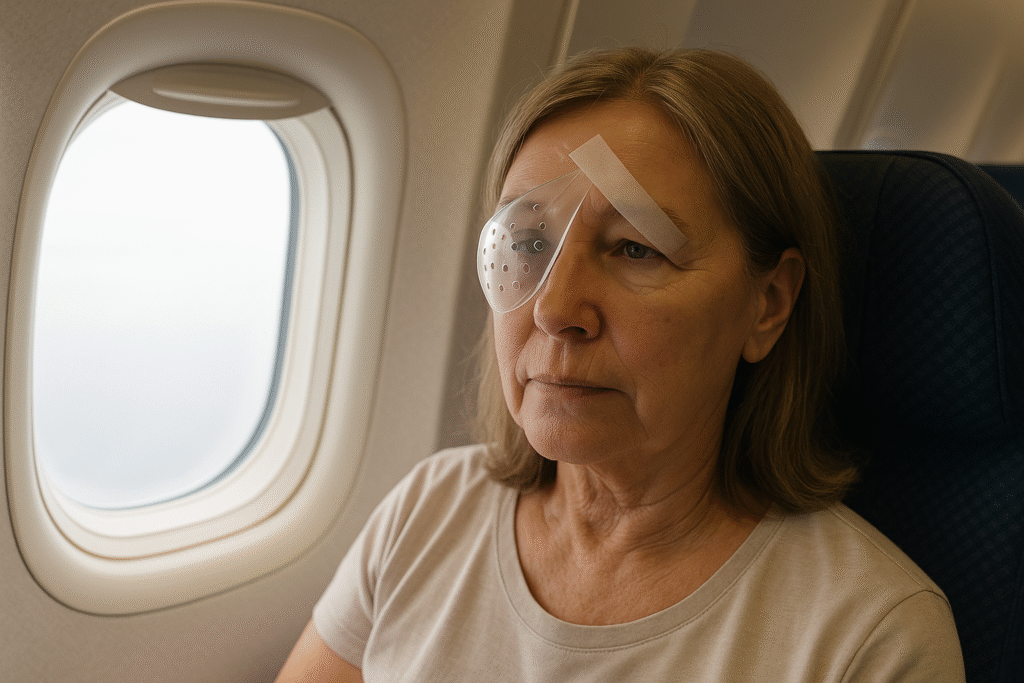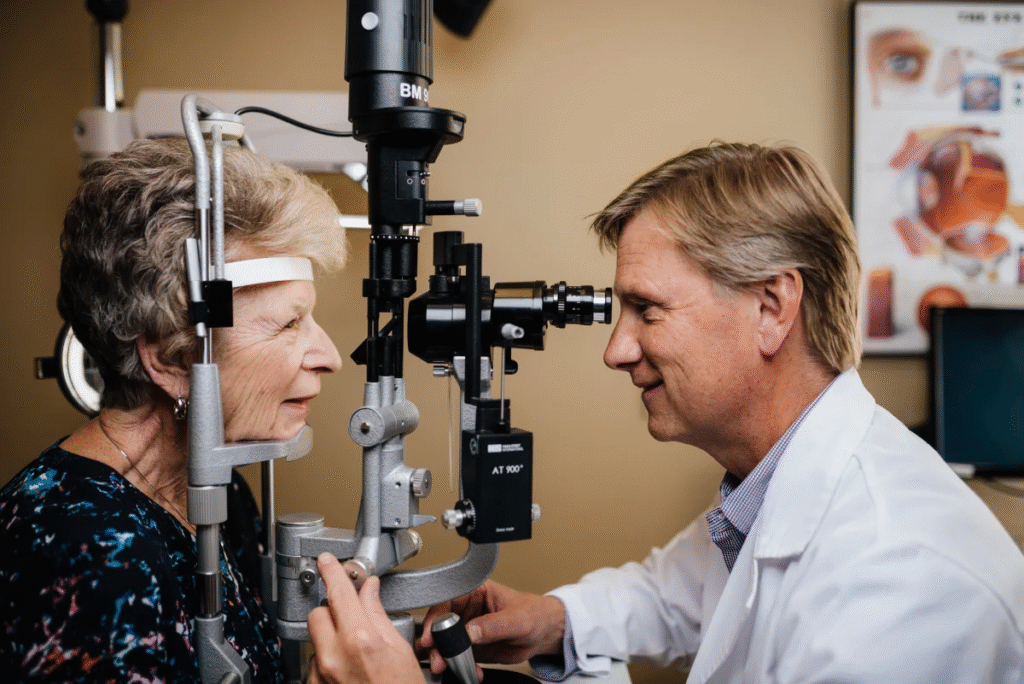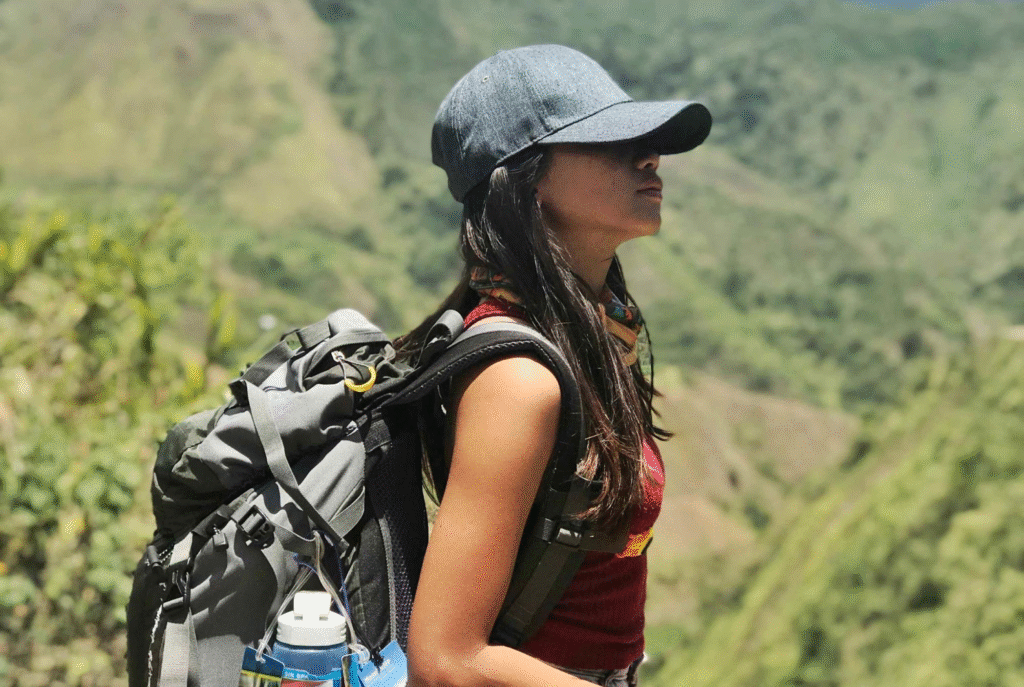You should pay special attention to your recovery schedule to plan a trip following a cataract surgery. The big question many patients ask is how soon can you travel after cataract surgery without derailing their healing process. Learning about the correct recovery rules will make sure that your journey of restoring your vision goes well.
This ultimate guide will discuss the time to restart travel activities, as well as how soon can you travel after cataract surgery according to medical guidelines and your personal healing processes.

Understanding Cataract Surgery Recovery Basics
One of the most common and effective medical interventions that has been carried out globally is Cataract surgery. Nevertheless, time and medically prescribed actions are needed to recover. It takes time before your eye can fully recover its functions, and you can indulge yourself in activities such as traveling.
This process of healing is usually implemented in phases. First, you can have some pain in your eye, blurred vision, and sensitivity to light. These symptoms are slowly reversing in the initial weeks after surgery.
The majority of surgeons suggest that patients should not do vigorous exercises, at least in the first period of recovery. These include the elimination of extreme activities that can be taxing to your eyes, such as pressure, or putting your eyes at risk in complicated situations that can arise.
Timeline To Travel After Cataract Surgery
In the first 24-48 hours after surgery
The first two days should be spent in total avoidance of travel. To start the healing process, your eye must be fully rested. How soon can you travel after cataract surgery is only a question that comes into play after the crucial first year.
The vision improvement observed in the majority of patients is the clearest during the first week. But this does not necessarily imply you are prepared to go and have travel adventures.
First Week Recovery Phase
A patient would be interested in knowing when he or she can travel after having cataract surgery, and many would ask this question after the first week. As a rule, it may be possible to make short local visits one week after, though you should only do so with the express permission of your surgeon.
It is during this time that air travel is usually not advisable because of pressure changes in the cabin and possible complications. Certain circumstances may be acceptable in regard to the necessity of ground transportation.

Factors Affecting Your Travel Timeline After Cataract Surgery
Individual Healing Rates
Each patient recovers in varying ways, and how soon can you travel after cataract surgery is a very personal question. There are factors affecting your recovery:
- Overall health status
- Age and lifestyle factors
- Complexity of your surgery
- Other eye conditions.
Type of Travel Considerations
The means of transport greatly influence the ability to move safely after cataract operation and as soon as possible. As an example, one intending to make a road trip with frequent stops has various considerations compared to one intending to travel abroad.
Recovery can be made more comfortable in modern travel gear. A convertible travel dress is flexible in changing weather conditions when one is on a recovery trip. In the same vein, a couples travel map will assist in organizing destinations that are friendly to the eyes and help patients who are traveling with their partners.
Surgical Complications
The majority of cataract surgeries are done without problems. But when complications occur, they considerably influence the question of how soon can you travel after cataract surgery. Your surgeon will offer special recommendations depending on your case.

Travel Safety Guidelines by Transportation Method
Air Travel After Cataract Surgery
Airlines have no particular ban on passengers whose cataracts have been removed recently. Nevertheless, dry air and changes in cabin pressure may impact healing eyes. The majority of surgeons prescribe pre-air travel of 2-4 weeks.
Do not forget to carry your preservative-free artificial tears when you fly. Dry cabin air may cause the symptoms of post-surgery dryness to become severe.
Road Trip Considerations
Recent cataract surgery patients have greater flexibility with ground transportation. Rest stops, lighting conditions, and the speed of traveling can be easily controlled, unlike in other means of transport.
To those adventure lovers who have cars such as those that have a Ford Ranger long travel kit, it would be wise to wait to be given clearance by the surgeon on all activities before engaging in off-road games. Rough rides and exposure to dust may make recovery more complex.
International Travel Planning
Cataract surgery also involves extra planning for international travel. Take into account time zone differences, access to drugs, and access to eye care professionals in your destination.
Find out more about the healthcare facilities of your destination. Destinations with good health facilities, such as those listed in magazines such as Where is the Safest Place to Live in Mexico in 2025? Give confidence to the healing of patients.

Creating Your Post-Surgery Travel Plan
Pre-Travel Medical Clearance
Travel not without the specific instructions of your surgeon. Book a follow-up appointment before the date of planned departure. Specifically, in your case, your doctor will keep track of your healing and will provide you with information about when you can resume normal life after having cataract surgery.
Travel Preparations
Bring additional medicine and eye drops in a carry-on bag. Bring the contact information of your surgeon and recent medical records. The travel insurance should be considered to include pre-existing medical conditions.
Destination Selection
Select places where there is sufficient light and few environmental risks. Destinations with beaches will need more sunscreen, whereas high-altitude places may influence the level of comfort that you would have during recovery.
Indoor/outdoor balance, such as that provided by cultural locations like those in the 7 Day Mexico City Itinerary: The Perfect 1 Week Travel Guide, is gradual enough to resume activities.

Special Considerations for Different Traveler Types
Solo Female Travelers
The creativeculturetribe the rise of solo female travel movement, places emphasis on safety and planning. Victims of cataract surgery who are female are expected to care more about their destinations with good healthcare facilities and good transport networks.
Prepare emergency contacts and make sure somebody is aware of your schedule. The creativeculturetribe, the emergence of a solo female travel community, can usually provide useful tips on medical travel planning.
Think about becoming members of online groups in which the creativeculturetribe, the emergence of solo female travel forums, feature medical recovery stories. Such sites offer useful tips from other travelers who have been through the same predicament.

Couples and Family Travelers
The company of others has benefits in the process of cataract surgery recovery. A travel partner would help in navigation, remind you of medication, and in emergency cases if they occur.
Take such aids as a couples travel map and see how to draw the route with frequent stops and marks of medical facilities. A couples travel map would also be useful in finding eye-friendly things to do and places to stay on your trip.
In choosing accommodations, make sure that your couples travel map has well-lit properties, elevator-accessible, and close to medical facilities.

Adventure Travelers
Postoperative activity limitations are commonly a challenge to adventure enthusiasts. Individuals who have specialized gear, such as a Ford Ranger long travel kit, should take a full-scale medical clearance before they resume off-road adventure.
Think of more moderate options first. Cultural experiences and photography tours will not affect recovery, but will give excitement. Your Ford Ranger long travel kit will wait attentively till you are fully recovered.
Graduate activity resumption. Easy trails should be the beginning before you move to activities that demand your Ford Ranger long travel kit and specialized equipment.

Managing Travel Comfort During Recovery
Eye Protection Strategies
Sunglasses are instrumental post-cataract surgery travelling companions. Select wrap-around clothing that will keep the wind and other objects out. Protection from UV prevents complications and improves comfort when being out in the air.
Accommodation Considerations
Choose rooms that have great lighting and seating chairs. Stay out of rooms where fluorescent lights are too hard or the window curtains are inadequate, as may cause discomfort.
Activity Modifications
Adjust scheduled activities to suit your rehabilitative requirements. Museum and light walks and tours are fine, and the water sports and adventure activities should be postponed until medical clearance.

FAQs
1. How soon can you travel following the cataract surgery in case both eyes are operated on?
In cases where both eyes need to be operated on, there is usually a time gap of 1-2 weeks. The travel planning becomes complicated and normally takes 4- 6 weeks after the second surgery before engaging in any extensive traveling.
2. Am I able to drive after surgery on the cataracts?
Access to driving is based on personal recovery. With surgeon approval, most patients can resume driving in 1-2 weeks, though travelling (by car) may need more waiting time before it is permitted.
3. What should happen in the event of problems during travel following cataract surgery?
Notice your surgeon on urgency in case of sudden vision alteration, extreme pain, or aberrant symptoms. Serious complications might require emergency room visits, and that is why travel insurance is the one which is suggested.
4. Are there any places to avoid in the post-cataract surgery?
Do not go to a place where there is extreme weather, high pollution, or low medical service during early recovery. There may also be problems with dusty conditions and high altitude.
5. What is the age-varying question: how soon can you travel after cataract surgery?
Patients with age can take more time to recover to safe travel. The age aspect is not as important as personal health factors, but older persons should be especially alert when it comes to rushing their travel plans.
Conclusion
The answer to how soon you can travel after cataract surgery is a matter of several personal factors. These are healing progress, travelling method, and choice of destination. Short trips can be contemplated by most patients 1-2 weeks following medical permission. Nevertheless, the major traveling normally entails 4-6 weeks to recuperate.
It is best to always follow the recommendation of your surgeon rather than travel aspirations. Safe adventures are achieved through proper planning, the necessary preparations, and the gradual resumption of the activity. The trips that you make immediately after surgery should be as entertaining and trouble-free as possible.